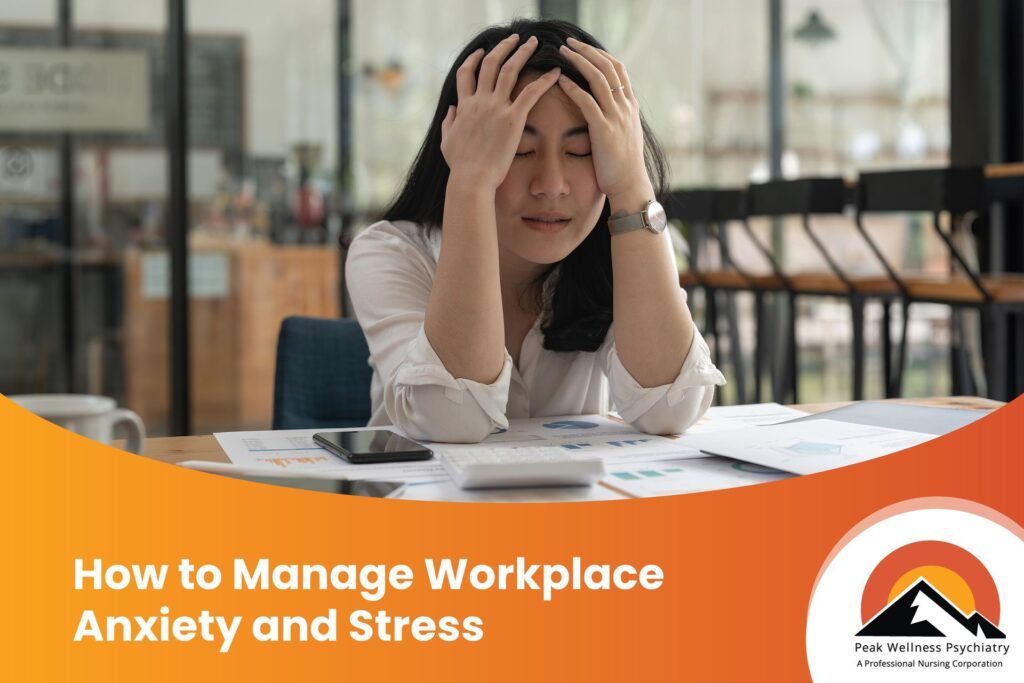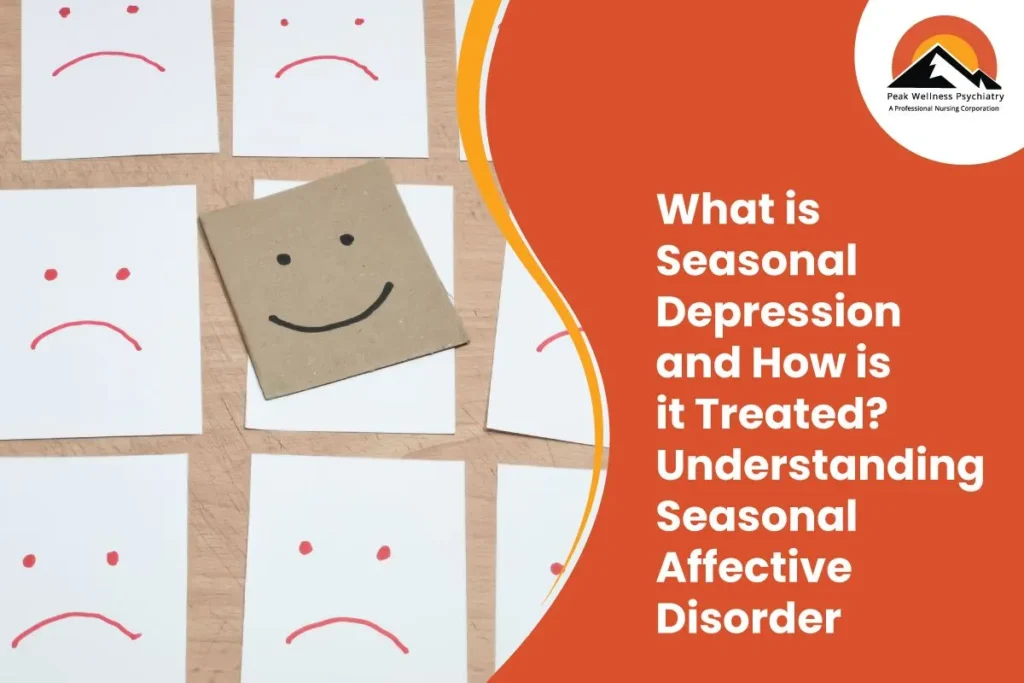Anxiety at work is not always easy to manage and cope with. Many people experience excessive worry about daily problems related to work or their personal lives. Workplace anxiety and stress can significantly impact an individual’s well-being and productivity.
Thus, employees and employers need to understand how to manage and reduce these feelings in the workplace.
What is Workplace Anxiety?
Workplace anxiety, characterized by stress, nervousness, unease, or tension, can stem from various sources such as job performance, interactions with coworkers, or public speaking.
Unfortunately, it is a prevalent issue, with a significant percentage of Americans reporting feelings of stress during their workday. Although a moderate level of stress is normal, excessive anxiety can affect one’s physical and mental health and personal and professional life.
Does Work Stress Cause Anxiety?
Anxiety at work has different causes depending on the individual. Anxiety at work can result from long work hours, high stress, a lack of support from coworkers, and other factors.
You may also feel anxious in the following situations:
- Workplace issues
- Delivering a presentation
- Maintaining personal relationships
- Events such as meetings, lunches, and office parties
- Setting deadlines and meeting them
- Taking part in meetings
The Difference Between Workplace Anxiety and Anxiety at Work
Workplace anxiety and anxiety disorders are often hard to distinguish. The key difference? Workplace anxiety is only limited to work.
The following symptoms can identify work anxiety:
- In your free time, you feel pretty good, and your anxiety decreases.
- It’s easy to let work-related anxiety and dread overshadow your weekend when you work Monday through Friday.
- A competitive work culture makes it difficult for you to talk with colleagues, but you have no problem chatting with friends.
When Do Your Symptoms Suggest An Anxiety Disorder?
In addition to being persistent and consistent, anxiety disorder symptoms negatively impact your life in many ways. Stress at work generally induces workplace anxiety, which differs from other types of anxiety. Conversely, anxiety disorders develop and persist regardless of your work situation.
Effects of Workplace Anxiety
Anxiety at work can leave you feeling awful. We spend so much time at work or thinking about work that anxiety can quickly invade every aspect of our lives. Untreated anxiety in the workplace can have the following effects:
Loss of Self-Esteem
Many of us view our jobs as reflections of ourselves. Performing well at work is vital for various reasons, including financial security and self-esteem. Whenever our identity is compromised at work, we tend to feel less positive about ourselves.
Reduced Self-Efficacy
A sense of self-efficacy is a belief in one’s ability to succeed. The degree to which you feel positively about the task is a crucial indicator of your self-efficacy. Feeling good gives you more energy to tackle new challenges and succeed. In the face of work-related stress, it is harder to stay resilient when you don’t feel good.
Pain and Illness
Chronic stress adversely affects the body’s functioning. Several health issues can be aggravated or caused by near-constant anxiety. In addition to migraines and heart disease, stress is associated with gastrointestinal upset, sleep disturbances, and sleep disorders. Furthermore, stress can compromise immune function, making you more prone to illness and colds.
Also, read on Stress Effects on the Body.
Performance Problems
Focus, time management, and meeting deadlines are all difficult when we are anxious. Our inability to ask for support or clarify project questions becomes harder when we are uncomfortable asking for help at work. When an employee’s performance or participation suddenly changes, it may be a sign that they are experiencing anxiety.
Symptoms of Workplace Anxiety and Stress
There are several physical symptoms associated with workplace anxiety and stress, including:
- Experiencing fatigue,
- Having trouble sleeping
- Having stomach issues
- Migraines
- Elevated blood pressure
- A decrease in libido
- Hyperventilation or shallow breathing
- Muscle tension
- Memory problems
- Feelings of chest pain
When stressed and anxious, the body produces hormones like cortisol and adrenaline, which affect the heart rate and muscle tension.
Several emotional symptoms may be present, including:
- Feeling anxious
- Depressed
- Disinterested
- Easily irritated
- Overwhelmed
- Frustrated
Additionally, the following behavioral symptoms can be observed:
- Social withdrawal
- Excessive drinking or drug use
- Smoking
- Unhealthy eating
- Difficulty making decisions
- Changes in appetite
- Avoiding tasks and activities that cause anxiety
- Procrastination
- Difficulty concentrating
- Neglecting personal needs and avoiding work.
How To Manage Workplace Anxiety and Stress?
When it comes to managing workplace anxiety and stress, several strategies can help you cope with it:
Establish boundaries
Keep your personal and professional lives separate. It can include disengaging from work-related technology after work hours and dedicating time to relaxation and self-care. Divide your personal and professional lives by establishing some boundaries:
- Keep your work email off your personal mobile phone.
- Check your email only at work.
- When you’re finished with your workday, turn your work phone off.
- You may have to speak with your manager if you cannot answer all urgent emails/phone calls during work hours.
- Don’t take work home if you don’t have to.
- Work should be taken home earlier to prevent thinking about it before bed.
Practice mindfulness
Yoga, meditation, and deep breathing are all mindfulness techniques that can help relieve stress. Try to incorporate these practices into your daily routine.
Stay organized
A cluttered workspace can contribute to stress and anxiety. Try to keep your workspace clean and organized to help reduce overwhelming feelings.
Communicate effectively
Good communication is critical to reducing stress and anxiety. Talk to your manager or trusted colleague if you feel overwhelmed or stressed out. They can offer support or help you develop a workload management plan.
Maintain good physical and emotional health
Keep yourself healthy by getting enough sleep, eating right, and exercising regularly. It’s also important to take time for yourself and do things you enjoy.
Seek professional help
If you find that your stress and anxiety are impacting your ability to function at work, consider seeking professional help. Having a therapist or counselor by your side can help you develop coping strategies and give you support.
Develop a support system
Whether it’s colleagues, family, or friends, surround yourself with people who will support and encourage you.
Take Control of Your Anxiety
Anxiety can be treated if it becomes a vexing issue at work. Look no further if you need online psychiatrist nurse practitioners to help you! Peak Wellness Psychiatry offers telemedicine to all California, Arizona, and Washington patients. In addition, we accept a variety of insurance plans.
Peak Wellness Psychiatry provides integrative Psychiatric Nurse Practitioner Care that combines medication with lifestyle modifications to meet individual mental health needs. We tailor each patient’s plan to meet their unique needs to help them thrive. Additionally, we consider a lifestyle, body, and mind approach when providing psychiatric consultation, diagnosis, and treatment options for anxiety.
Additionally, we can prescribe online medications for anxiety and treat various mental health conditions. Regardless of your situation or preferences, we tailor our healing methods to meet your needs!
For more information, call (888) 909-8676 or visit the link. Telepsychiatry appointments can be scheduled online, and we offer appointments within four days!




